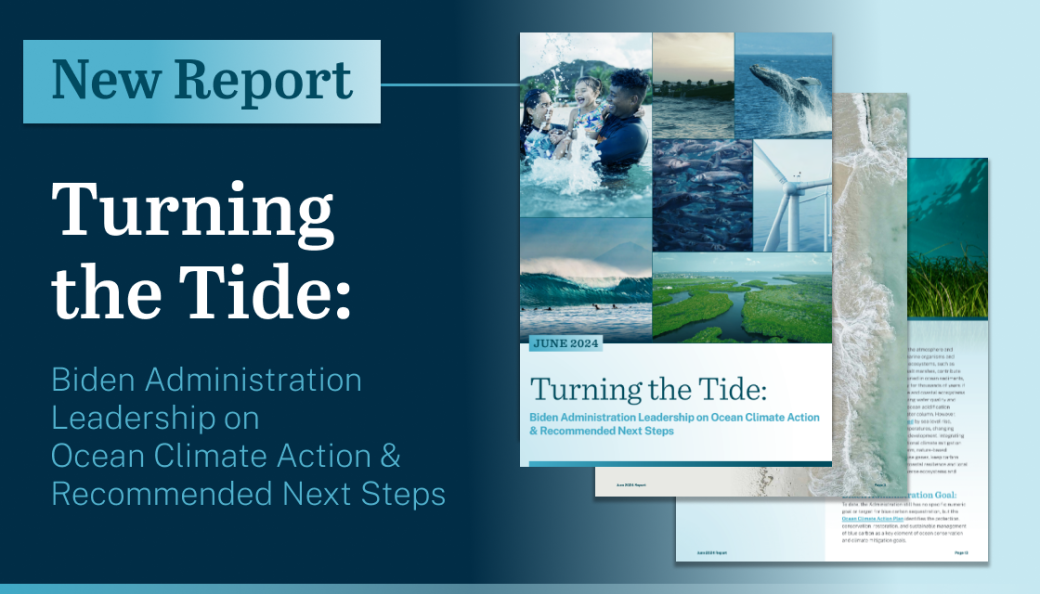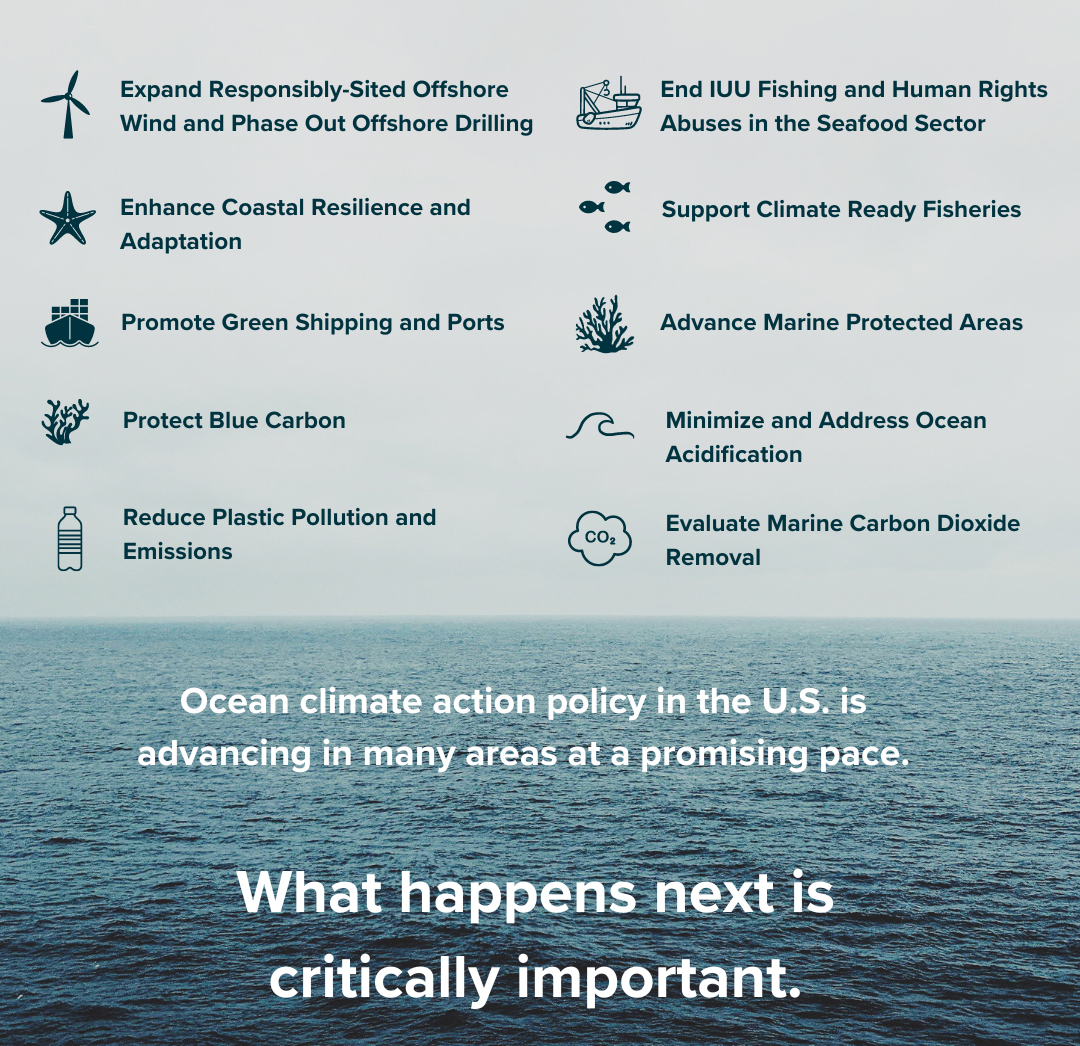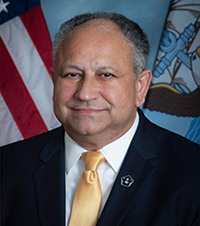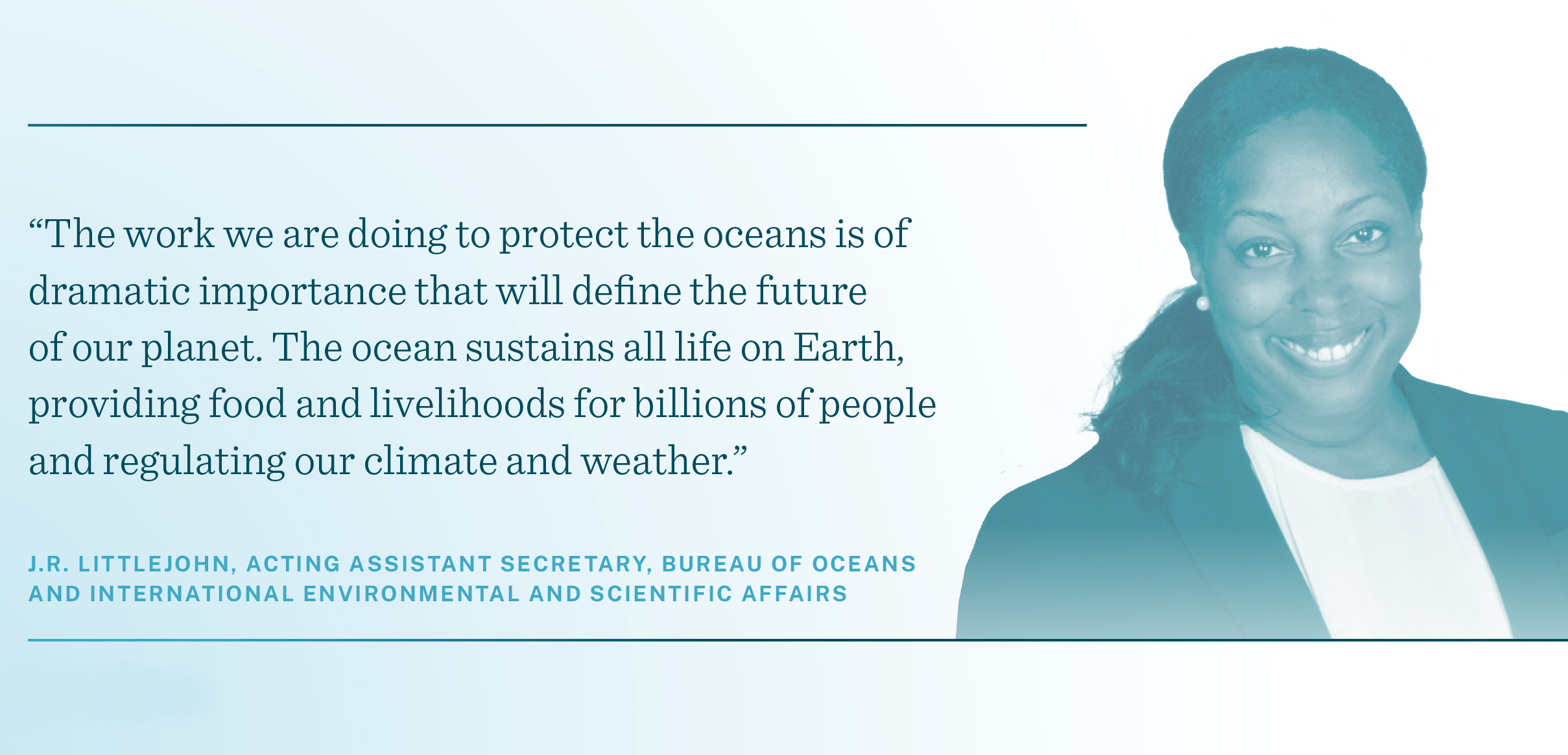Turning the Tide: Ocean Climate Action Next Steps

Ahead of World Oceans Day 2024 on June 8, the Center for the Blue Economy in partnership with more than 60 marine and environmental organizations released a report highlighting the Biden Administration’s leadership on ocean climate action and key next steps.
The progress report, entitled “Turning the Tide: Biden Administration Leadership on Ocean Climate Action & Recommended Next Steps,” urges action in 10 key areas:

- Expand Responsibly-Sited Offshore Wind and Phase Out Offshore Drilling
- Enhance Coastal Resilience and Adaptation
- Promote Green Shipping and Ports
- Protect Blue Carbon
- Reduce Plastic Pollution and Emissions
- Support Climate Ready Fisheries
- End IUU Fishing and Human Rights Abuses in the Seafood Sector
- Advance Marine Protected Areas
- Minimize and Address Ocean Acidification
- Evaluate Marine Carbon Dioxide Removal
The United States is positioned like never before to leverage the ocean as a powerful source of climate solutions. The Biden Administration’s leadership across federal agencies, combined with unprecedented ocean and coastal funding from the Bipartisan Infrastructure Law and the Inflation Reduction Act, is positioning the US as a global leader to leverage the ocean as a source of climate solutions. With an ambitious administration, strong ocean climate leadership in Congress, and a relentless nationwide network of ocean advocates, our country is ushering in a new era of ocean climate action.

It’s so great to see the strides the Biden Administration and the larger ocean community have made in the past five years, since the Ocean Climate Action Plan was originally conceived. We look forward to continuing to work with the Administration for years to come using ocean and coastal resources responsibly to mitigate climate change, and to assist coastal communities as they adapt to climate impacts and build the new blue economy for the 21st century.
As climate impacts on our ocean continue to intensify, it will be critical to build on the strong momentum for ocean climate action generated over the last several years and continue to take bold action to address the climate crisis.

We view the climate crisis much the same way as damage control efforts on a stricken ship. This is an all-hands-on-deck movement.
Students in the Environmental Policy & Management (EPM) master’s degree program at the Middlebury Institute if International Studies have been key contributors to the Ocean Climate Action efforts from the start, and this report was no exception. Elle Bent, who graduated in May of 2024 with master’s degree in EPM with a specialization in Ocean and Coastal Resource Management worked closely with Dr. Scorse on four chapters of this report and provided invaluable research and writing skills.

Working on this project was both inspiring and motivating; I was inspired by the historic progress the Biden administration has made towards ocean climate action and motivated by what still needs to be done.
What Can YOU do?
- READ the report which is brief, direct, and will give you the background you need to understand how important the ocean is to the climate crisis, and what we can do to harness ocean solutions.
- CONTACTyour lawmakers and urge them to take OCEAN CLIMATE ACTION.
- SHARE on social media & talk about climate solutions with your community.

